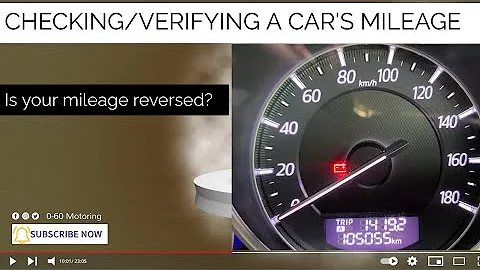3 Ways Your Chapter 13 Bankruptcy Case Can End
Table of Contents
1. Introduction
- Welcome to the topic of Chapter 13 Bankruptcy
- Overview of Chapter 13 Bankruptcy
2. Understanding Chapter 13 Bankruptcy
- What is Chapter 13 Bankruptcy?
- Benefits of Chapter 13 Bankruptcy
- Eligibility Criteria for Chapter 13 Bankruptcy
3. Three Ways a Chapter 13 Bankruptcy Case Can End
- Dismissal of Chapter 13 Bankruptcy Case
- Discharge of Chapter 13 Bankruptcy Case
- Conversion to Chapter 7 Bankruptcy
4. Dismissal of Chapter 13 Bankruptcy Case
- Reasons for Dismissal
- Consequences of Dismissal
- How to Avoid Dismissal
5. Discharge of Chapter 13 Bankruptcy Case
- Completion of Bankruptcy Plan
- Process of Obtaining Discharge
- Benefits of Discharge
6. Conversion to Chapter 7 Bankruptcy
- Qualifications for Conversion
- Process of Conversion
- Advantages and Considerations of Conversion
7. Conclusion
- Importance of Seeking Professional Help
- Final Thoughts on Chapter 13 Bankruptcy
Three Ways a Chapter 13 Bankruptcy Case Can End
Chapter 13 bankruptcy is a legal process that allows individuals to reorganize their debts and create a repayment plan with the approval of a federal bankruptcy judge. This type of bankruptcy offers several benefits, such as stopping repossessions, foreclosures, and allowing the restructuring of mortgage and car loan payments. However, there are three ways a Chapter 13 bankruptcy case can come to an end.
Dismissal of Chapter 13 Bankruptcy Case
The first way a Chapter 13 bankruptcy case can end is through dismissal. Dismissal occurs when the case does not reach its completion and gets dismissed, either by the filer or by someone else filing a motion to dismiss. There are various reasons why someone may seek dismissal, such as strategic considerations. However, the most common reason for dismissal is the non-payment of bankruptcy obligations. In such cases, the Chapter 13 trustee may file a motion with the court to dismiss the case. Creditors can also file a motion to dismiss under certain circumstances. It is important to ensure all bankruptcy payments are made to avoid the risk of dismissal.
Pros:
- Provides an opportunity for strategic considerations in certain situations.
Cons:
- Can have severe consequences, including the reinstatement of creditors' rights and the loss of bankruptcy protections.
Discharge of Chapter 13 Bankruptcy Case
The second way a Chapter 13 bankruptcy case can end is through discharge. Discharge signifies the successful completion of the bankruptcy plan, where the debtor makes all necessary payments according to the approved reorganization plan. Once the plan is completed, the debtor receives an order from the court indicating that their debts have been discharged. This means that certain debts, such as medical bills, credit card debts, and restructured car loans, are wiped away. Additionally, mortgage arrears are brought current. The Chapter 13 discharge order allows individuals to move forward and start rebuilding their credit.
Pros:
- Provides relief from debts and a fresh financial start.
- Offers an opportunity to rebuild credit and regain financial stability.
Cons:
- Requires strict adherence to the repayment plan and fulfillment of all obligations.
Conversion to Chapter 7 Bankruptcy
The third way a Chapter 13 bankruptcy case can end is through conversion to Chapter 7 bankruptcy. Under certain circumstances, if the debtor qualifies, they can file a notice with the court to convert their Chapter 13 case to a Chapter 7 case. Chapter 7 bankruptcy involves the liquidation of assets to repay debts. If the debtor meets the qualifications for Chapter 7, and the conversion is approved, they go through the Chapter 7 process and eventually receive a Chapter 7 discharge order.
Pros:
- Offers an alternative solution for individuals facing financial challenges during Chapter 13 bankruptcy.
- Provides an opportunity to eliminate unsecured debts through Chapter 7 discharge.
Cons:
- Requires meeting the eligibility criteria for Chapter 7 and potentially surrendering assets.
In conclusion, Chapter 13 bankruptcy cases can come to an end through dismissal, discharge, or conversion to Chapter 7 bankruptcy. It is crucial to understand the reasons for each type of conclusion and the implications they may have on the debtor's financial situation. Seeking professional advice and diligently fulfilling bankruptcy obligations can help navigate the bankruptcy process more effectively and increase the chances of a successful outcome.
Highlights
- Chapter 13 bankruptcy offers a reorganization and repayment plan for individuals facing financial challenges.
- Three ways a Chapter 13 bankruptcy case can end: dismissal, discharge, or conversion to Chapter 7 bankruptcy.
- Dismissal can occur due to non-payment or other strategic considerations.
- Discharge provides relief from debts and an opportunity to start rebuilding credit.
- Conversion to Chapter 7 bankruptcy offers an alternative solution for eligible debtors.
FAQ
Q: Can I choose to dismiss my Chapter 13 bankruptcy case?
A: Yes, you have the option to dismiss your Chapter 13 bankruptcy case. However, it is important to consider the consequences and seek professional advice before making a decision.
Q: Can a creditor file a motion to dismiss my Chapter 13 bankruptcy case?
A: Yes, creditors can file a motion to dismiss under specific circumstances, such as the debtor's failure to make required payments.
Q: What happens if my Chapter 13 bankruptcy case is dismissed?
A: If your Chapter 13 bankruptcy case is dismissed, you may lose the protections provided by the bankruptcy process, and your creditors' rights may be reinstated.
Q: How long does it take to obtain a discharge in Chapter 13 bankruptcy?
A: The length of time to obtain a discharge in Chapter 13 bankruptcy depends on the duration of the repayment plan, typically ranging from three to five years.
Q: Can I convert my Chapter 13 bankruptcy case to Chapter 7 bankruptcy?
A: Yes, under certain circumstances, if you meet the eligibility criteria, you can file a notice with the court to convert your Chapter 13 case to Chapter 7 bankruptcy.
Q: What are the advantages of converting a Chapter 13 bankruptcy case to Chapter 7?
A: Conversion to Chapter 7 bankruptcy may provide an opportunity to eliminate unsecured debts through a Chapter 7 discharge.
Resources:







